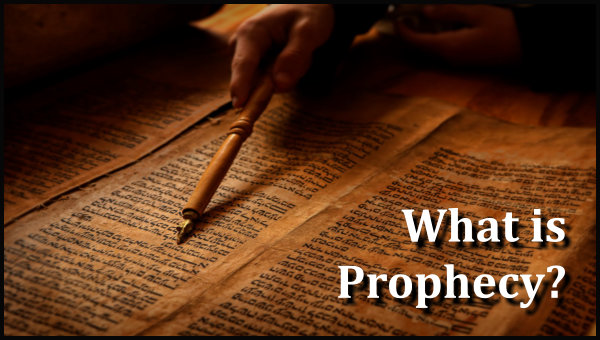By Tyson Thorne

It is my hope that you have enjoyed our survey of the Minor Prophets, and that you have discerned a theme about how God relates to his people and deals with those who cross them. Also, that God’s prophets rarely lived a life of luxury and convenience. The men (all the Minor Prophets are men, though some women have had the gift of prophecy throughout history) chosen to deliver God’s message needed a strong faith to be sure. Unless that prophet is Jonah, whom you will be able to read all about in the upcoming book that we’ll be publishing soon. But perhaps the most pressing point to learn is just how prophecy is differentiated from other forms of future knowledge.
In any detailed study of prophecy a definition of terms and similar concepts is worthwhile. In this way we do not mistake Bible narratives as something they are not and we can readily identify passages for what they are. The first step is identifying what prophecy is not.
Prophecy is not foreknowledge. Also known as “prescience”, foreknowledge is simply knowledge of something before it exists or happens. It’s a bit like watching a movie you’ve seen before, you already know what is going to happen. God has foreknowledge of events, but unlike a movie events can change depending on the decisions of those involved. 1 Samuel 23.1-.15 tell an interesting story where David inquires of the Lord on a number of occasions. On the last of these, David asked if Saul were coming to the city David and his men were staying in, and if the townspeople would hand David over to Saul when he arrived. God answered “yes” to both question. David decided to disband his army and send everyone off in different directions, while he went to hide in the desert. God’s foreknowledge of what would happen was based on David’s staying in the city. If David would have asked God about what would happen if he fled, God could have seen the outcome of that situation as well. Foreknowledge does not equal predestination. Which brings us to our next point.
Prophecy is not predestination. Sometimes referred to as predetermination, or foreordination, predestination means to destine in advance. Using the 1 Samuel passage above, we can see the difference easily. Had God predestined David to be captured by Saul the event would have come to pass, regardless of any decision David made. There is no escaping a predestined event. This is often confused with prophecy as many prophecies (especially those regarding End Times events) are predestined to occur but this is not the case in every prophecy. Take for example Jonah’s prophecy to Nineveh, that the great city would be destroyed unless they repented. The city’s response to God’s warning was favorable and they avoided judgment. Had the cities destruction been predestined, it would not have mattered if the people had repented.
Prophecy is not fortune-telling. People use a myriad of methods to try and figure out their future. Some of these methods are (mostly) harmless such as horoscopes and psychic hotlines, and some are downright dangerous like consulting a reader of Tarot cards or other sorcerer. Fortune-telling is usually defined as a mystical or psychic ability to perceive (usually vaguely) a person’s good or bad fortune. While there are examples of such things in the Bible, the most well-known being the girl of Acts 16.16. That said, it should be noted that God never interacts with people in this way or through the methods used by such faithless people and condemns their practices outright. The child of God should never be involved with practitioners of these dark arts.
What, then, is prophecy? There is nothing else like true prophecy, which is the departing of divine knowledge, usually very specific knowledge, regarding future events. Unlike fortune-telling, this knowledge of future events comes directly from God rather than stars, cards or demons. Unlike foreknowledge, the outcome and provisions of the prophecy is set by God. For example, there will be a final battle between good and evil, God has declared it to be so. The outcome of that battle is also guaranteed by God. In the case of Nineveh it may appear that the people’s repentance set the outcome, but such a view is incorrect. God directly intervened in their history with a choice, repent or die. Had God not cared about the people at all, they would have continued just as they had before his intervention. God’s intercession and the possible outcomes were all under his control.
|
|
